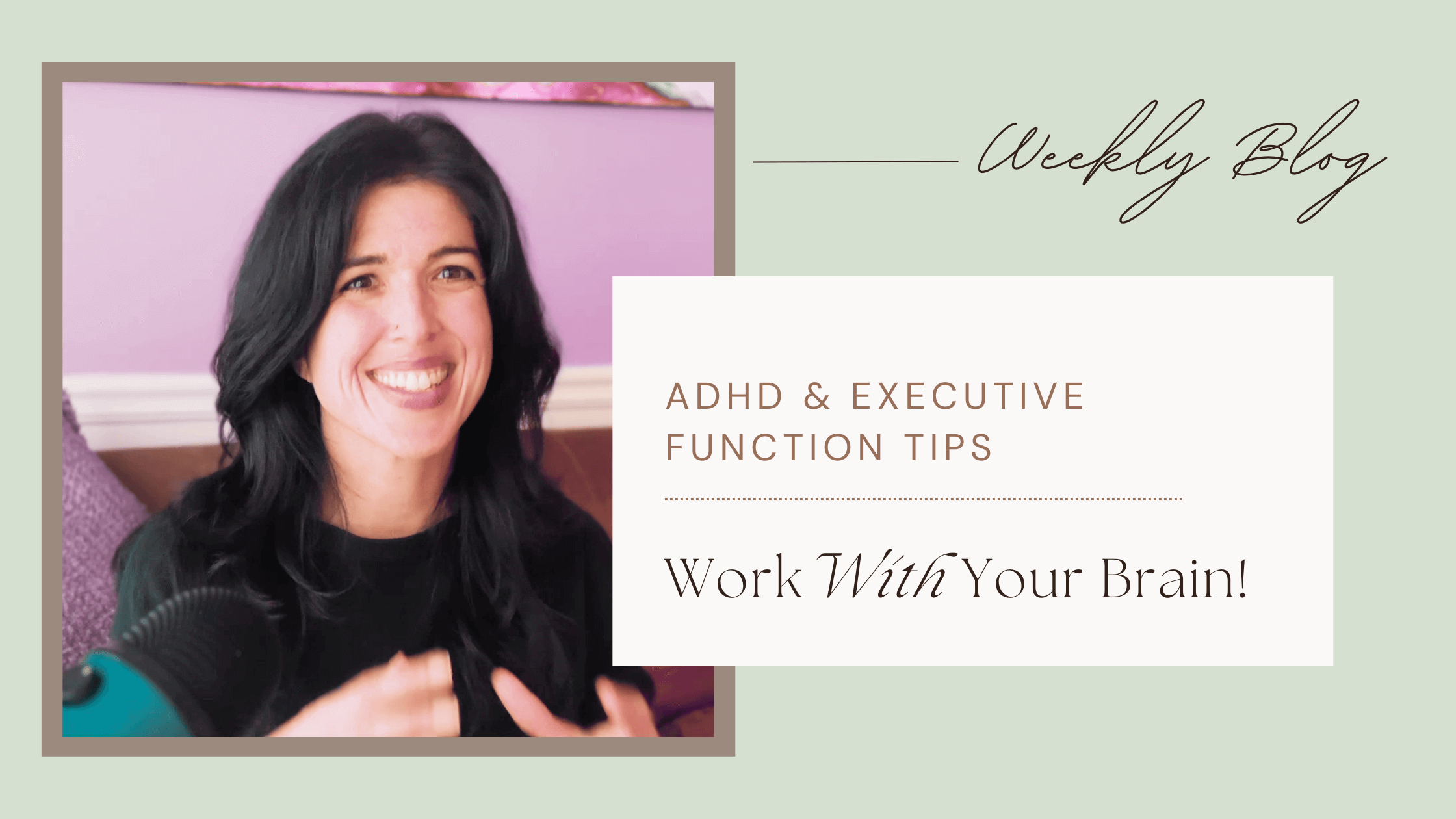
I Hate Mindfulness- Mindful Ideas for ADHD
Prefer Video? Watch the YouTube Video Here!If you have ADHD and feel like mindfulness “isn’t for you,” you’re not alone.We hear all the time that mindfulness improves focus, emotional regu
Read more...
ADHD and Thought Distortions: When Your Brain Lies to You
One of the sneakiest challenges of living with ADHD isn’t time management or procrastination, it’s the thoughts
Read more...
Brain-Friendly Holidays: Keep the Joy, Reduce the Stress
Today we’re talking about practical, realistic, brain-friendly ways to lower stress, avoid burnout, and protect your energy during the holidays. No perfectionism just strategies that actually work your brain! In this video we cover: Why holidays feel so intense with ADHD, How to simplify without losing joy , A better way to look at your calendar, Supporting executive functioning during busy seasons, Delegation, automating, reducing decisions, Building in recovery time, Anchoring habits for emotional + physical regulation, Self-compassion during a messy, beautiful season
Read more...
Gratitude for ADHD Brains: Simple Practices That Actually Work
What if I told you there’s a free, 10-second tool that can help calm your ADHD brain, reduce stress, support sleep, improve mood, and build emotional resilience? In today’s video, we’re talking about gratitude practice for ADHD brains—and not the unrealistic, perfectionistic version you may have been told to do. I’ll walk you through simple, practical ways to make gratitude accessible, doable, and actually helpful for ADHD nervous systems.
Read more...
What's In Your Control? Spending Your Energy Wisely!
If you live with ADHD, you know how exhausting it can feel to manage everything: emotions, energy, focus, and all the expectations.In this video, we're talking about how to save and spend your energy on the most important things! It explains the concept of locus of control: understanding what is truly in your power and what’s not helps make daily life easier, save you energy, and helps you be more productive! You’ll learn: ✔️ How to tell the difference between internal and external control ✔️ A key that can help with planning, motivation, and emotional regulation ✔️ Real-life ADHD examples that make this concept click
Read more...
Not Everything Gets Done (And That's OK)
If you’re always chasing a never-ending to-do list, feeling like you're behind no matter how hard you try, this episode is for you.We’re talking about tolerating "undone".Not everything on our list gets finished, and that’s not an ADHD failure, that’s just life. But when you live with ADHD, that undone feeling can trigger panic, shutdown, or burnout. You don't trust yourself to stay on top of things and it's hard to know what to focus on. Today we'll talk about how to build trust in yourself when nothing ever feels “done” and how to keep moving without relying on last-minute chaos.
Read more...
3 Tips for ADHD-Friendly Self-Care & Hygiene (Without Shame)
Today we’re talking about self‑care: not the spa kind, but the real, day‑to‑day care of your body, space, and routines. Hygiene, cleanup, grooming; these can feel overwhelming and struggles in this area often carry shame. But this is not a moral issue. It’s a function issue. We can problem-solve the executive function, sensory, and thought obstacles that make this hard. In this episode, I’ll share 3 practical tips to help you move through the friction of self-care with more ease, compassion, and real-world supports.
Read more...
10 ADHD Friendly Tips for College Success
College shifts the game: in high school, there are rails and structure built in. In college? Not so much. That’s why many folks with ADHD hit a wall with this transition. I'm sharing 10 ADHD‑friendly tips for transitioning to college in this episode: practical strategies to help you: build your support system, routines, and resilience. Learn more: use/maintain accommodations, ADHD friendly class scheduling, get systems in place, how to read the syllabus & extract key info, build a daily habit of checking email & assignments, develop a weekly review / bird’s-eye planning, choose study spaces that fit your brain / adapt to how you learn (audio/visual etc.), medication logistics, build external accountability & support and manage self‑care: body, sleep, nutrition!
Read more...
How Shame Hijacks Your ADHD Brain (And What You Can Do About It)
Watch/ Subscribe on YouTube here✉️JOIN MAILING LIS
Read more...
People Pleasing, Masking & ADHD
Navigating the world with ADHD often involves developing a skill known as masking, where individuals suppress their true selves to fit in. This practice, however, can lead to burnout and disconnection. The blog post delves into the distinction between masking and problem-solving, using relatable examples like interrupting conversations and classroom stimming. Instead of silencing one's traits, it advocates for a collaborative approach, emphasizing creativity and empathy without self-censorship. Personal anecdotes illustrate the profound impact of masking, highlighting how it sometimes blocks authentic connections and opportunities. As the article encourages, understanding and embracing one's ADHD traits can lead to more genuine interactions and a better balance between self-expression and social harmony.
Read more...




